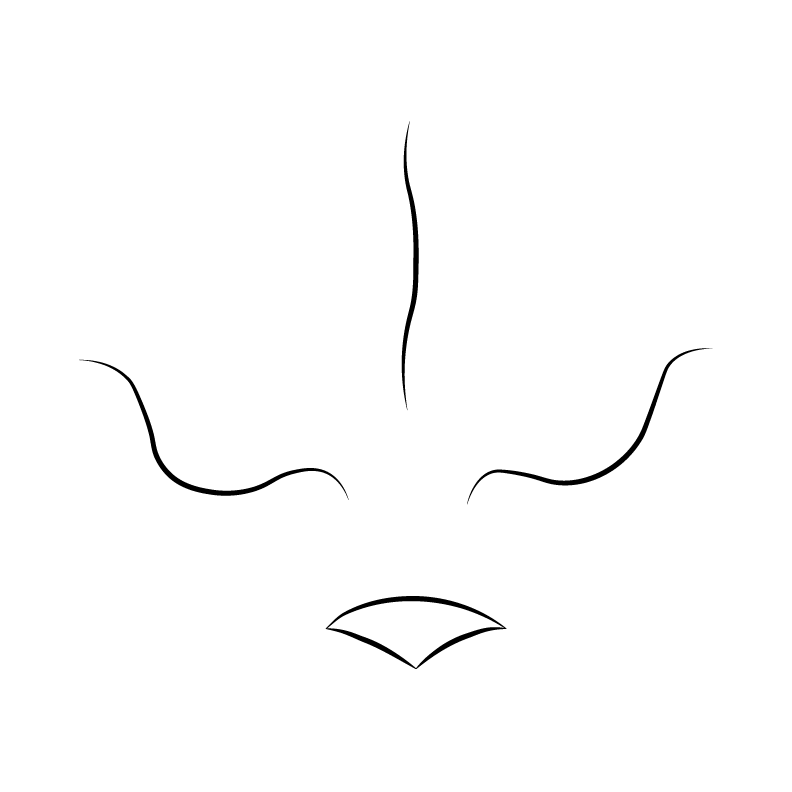Bast: Re-Membering Place Through Story
A Threshold Town
At the northeastern edge of the Nile Delta sat Bast: A gentle town marking one of the first major stops on the way into the heart of Old Kingdom Egypt, towards the source of the Nile. It was accessible by land and sea. With its rich black earth, regular floods, and beloved cats, Bast lived under the care and protection of its tutelary goddess, Bast. Here, cats were honored as living extensions of Bast herself, both as companions and guardians of place.
Yet, Bast was also exposed.
Set on the Eastern frontier of the Old Kingdom, the town saw waves of migration, settlement, trade and invasion from neighboring Sea and Steppe people. Sea people came as pirates and merchants. Steppe people came as horsemen and caravans. Each people brought unique energy — some harmonious, some dissonant.
Each new campaign drained and diluted the spirit of Bast.
Over time, the rhythm of the town was strained.
What had once been a soft, fertile land became tense and uneasy.
Flight of the Spirit
One day, after a particularly devastating attack, Bast herself was shaken.
Like a startled, skittish cat, she fled! Up a nearby mountain, and even further up, into the branches of a lone tree. There, Bast held fast to a branch, shivering.
Bast no longer felt safe in her own town.
With her departure, life drained from the soil. The Nile’s familiar flooding ceased, and the quiet harmony of Bubastis dissolved. The town began to starve and suffer.
Although the people prayed, called and cried out to Bast, she’s nowhere to be found.
So the people beseech other gods to bring Bast back — Yet none of the gods could locate her.
Finally, the great sun Ra sends Thoth, the divine scribe and story-keeper, god of wisdom and memory, to seek her out.
Thoth: Sought & Found
Thoth soared across the sky, scanning the land below, until he spotted her:
A vigilant figure perched high in a mountain tree, far from human reach.
He approached gently and delivered the pleas of the people:
Come home, Bast! Return to Bubastis.
But she refused. She was too terrified, too unsettled by the memory after memory of invasion — by land and by sea!
What’s a tutelary deity to do when she cannot protect her own? Bast was lost.
What made her town, hers? How could she trust in Place again?
The Persuasion of Memory
Understanding, Thoth changes his approach. He turns to remembrance.
“Do you remember,” he asks, “the smell of petrichor on the Nile’s first flooding? That rich, earthy scent that belongs to no other place but yours? The soil of Bast has a special alchemy.”
Bast’s ears twitched. She remembered.
“Don’t you remember the incense? All the holy woods burned in your name? The daily perfumes worn to exalt you? The sweet anointing oils mixed in prayer?”
Bast sighed. She did remember. Those were her favorites.
“And the cool, fresh water,” Thoth smiled, “set out for you every single day, in every home and market? Wherever you roamed, there was always cool water waiting. And you could go and come as you please knowing that there would always be cool, fresh water, wherever you come and wherever you go.”
Thoth looked around at the dry, exposed mountaintop. “I don’t see any cool water on this mountain. Did you find any here, in all this time?”
Bast now noticed how dry and sharp her tongue felt. She would love water.
Thoth extended his wing, and bowed his head. Come home.
Homecoming: A Return & Restoration
Her memory reawakened, Bast accepted. Fear had dissolved into love and longing.
Bast readily returned to her people, to her scents, her waters.
There was rebuilding to do. Yet — With her, harmony returned.
Crops grew, incense burned, and the Nile swelled again.
Bast now knew: Invaders might come and go, merchants might pass through, and travelers may visit, but her Spirit endured. Her love of her town would outlast any ebbs and flows of human story.
Even if the river changed course, as it eventually did, Bast was steeped in the soil.
Her pleasure wafted through the region in the form of amulets, trinkets, and talismans: Material reminders that Place, pleasure, peace, and protection are intertwined.
A Spirit of Place Restored
This is the tale of a goddess who fled, and of the power of story and memory to call her home again.
The distinctive beauties of Bast’s namesake town — its scents, specialties, and harmonies — are indelible. Above all, it was Bast’s immortal pleasure body that re-rooted the goddess back into Place.
Bast’s retreat reveals the danger of community without continuum, and the hollowness of Place without Story. Her return re-members the reciprocal devotion between people, Place, pleasure, and remembrance.
This is the story of a Spirit of Place that was dis-located, then returned to her rightful role, reigning in harmony with a land that loves her back.
Author’s Note
This story lives at the crossroads of history and myth — from 4000 Years Ago!
Bast was a real town in Old Kingdom Egypt. It’s also called Per-Bast or Tell-Bast. It appears in the Bible as Pi-Beset. Its Greek name is Bubastis. It was exposed to Sea peoples of the Mediterranean and Steppe peoples of Eurasia — from traders to pirates to invaders. The city was eventually captured and deconstructed by Persians around 2000 years ago
In mythology we can read a surrealized history, reflecting what’s left behind or made fantastical through the oral record. This story touches on dis-location, and Remembrance as a pathway to return.
It’s also a story of repair. As we witness different forms of displacement and dispossession on Earth today, this archetype feels like good medicine. It carries a blueprint for restoration.
Cats are deeply place-based beings. Bast, as a cat goddess, stewards the felt-sense of Place.
Her story speaks to a somatic sense of beauty and belonging that never fades.
It exemplifies place-making and place-keeping even in the face of saudade.
I love that Bast explores what Return and Repair can feel like in the body, in the soil, in the heart.
^__^
Your Turn! 🪞 Reflect Here:
Feel free to share any thoughts, questions, or feedback on this tale.



